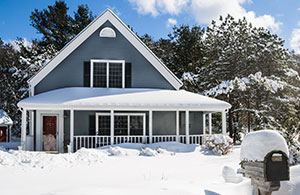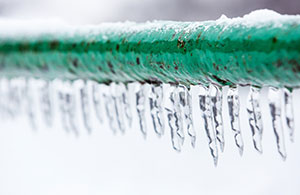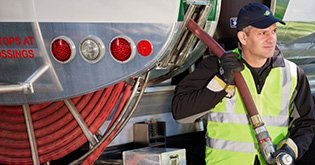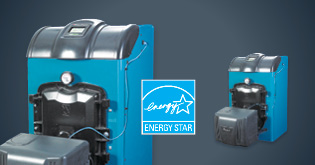
How to Winterize your home.
 Planning a long winter vacation? Travel a lot over the winter
months? Have a summer vacation home that you leave unoccupied over winter? If you answered yes to any of these questions, leaving any home or property vacant for long periods of time during colder weather puts it at risk of damage unless you ‘winterize’
it in advance. ‘Winterizing’ your home is taking some smart steps to make sure that your home can survive the coldest temperatures of winter to stop preventable damage, like frozen pipes bursting, natural gas leaks, and more.
Planning a long winter vacation? Travel a lot over the winter
months? Have a summer vacation home that you leave unoccupied over winter? If you answered yes to any of these questions, leaving any home or property vacant for long periods of time during colder weather puts it at risk of damage unless you ‘winterize’
it in advance. ‘Winterizing’ your home is taking some smart steps to make sure that your home can survive the coldest temperatures of winter to stop preventable damage, like frozen pipes bursting, natural gas leaks, and more.
What kind of damage does winterizing your home help prevent?
Winter’s cold, snow, freezing winds or temperatures, and any kind of blizzard conditions can lead to considerable home damage, including roof shingle damage or loss from strong winds to frozen pipes and lots more that are all potentially very costly to repair. Something like frozen pipes that burst can cost up to $5,000-$70,000 in total damages and repairs. Our checklist and helpful tips can help prevent the pain of some of these costly repairs and home damage.
Home winterization checklist.
Adjust your thermostat
- Do not turn your thermostat off.
- Set it at the lowest temperature that will prevent pipes or anything else from freezing (at least 50 to 55 degrees).
Shut off your property’s water supply at the main valve
- If you’re not sure how to do this or where the shut-off valve is, always call a professional to help.
- This eliminates unwanted pressurized water from entering your home.
- Open all faucets to let water drain from pipes after shutting off the main
- Call a professional plumber to help you open all faucets (inside and outside ones) after shutting down the main water supply and let them drain.
- Your water main delivers pressurized water to your home but any remaining water in pipes could freeze in very cold conditions
- Do this only after shutting off the main!
Clean all gutters to help water drain and flow through them
- Remove all leaves and other debris, this helps prevent interior leaks and most ice dams.
Shut down natural gas or propane lines
- Call your propane or natural gas service provider and have a technician do this to keep gas from entering your home while it’s vacant.
- This reduces or eliminates the risk of accidental release, which may cause a fire or dangerous ignition.
- NEVER attempt to work with your propane or natural gas line without calling your propane or natural gas provider.
Secure all ‘loose’ items on your property
- Remove yard furniture, clean up your yard and secure any items that could be dislodged or have the potential to become missiles in severe wind conditions.

Let neighbors know that you’re going to be away
- Ask them to keep watch on your home and to let you know of any unusual activity or damage.
- Always give them your winter contact phone number and email address.
Unplug all electronic devices and appliances
- This will help maintain low electric bills while you’re away
- Always unplug power strips to protect your electronics from power surges, as they use some electricity even when switched “off.” This also prevents random sparks from overheating wires, reducing fire risk.
Drain your water heater, along with your interior pipes
- Unless you are very confident or experienced, it’s always best to contact a plumber to do this for you to prevent any accidental flooding.
- If you have a basement sink, simply hook up a hose from your water heater to the sink to drain the 30 to 60 gallons a typical home water heater holds.
- All the particles and sediment that has collected in the bottom of the water heater, which inhibit efficiency, will also be washed away
Install a water flow sensor and low temperature sensor on your main water supply pipe
- Linking these sensors to a 24/7 monitored alarm system or your smartphone will alert you about problems while you’re away.
- Already have a round-the-clock intruder alarm system? Have them install these sensors for you.
- You can probably download a smartphone app for notification of problems.
- Need help installing sensors? It’s best to call your plumber.
Blow air through your pipes to rid your plumbing of any remaining water
- Call your plumber to have them use an air compressor to do this for you, to better ensure that your pipes will not freeze.
Need any help? Or have any questions?
As your local home service experts, the Meenan team can help you with any of your home winterization projects, so you can leave your home over the winter months with total peace of mind.



.jpg?sfvrsn=59b4717f_1)
.jpg?sfvrsn=38eb02bb_5)